The seminar was addressed by Mr. Ashok Sharma, BDO, Gairsain, Mrs. Basanti Sharma, ICDS, Mrs. Janki Rawat, ex. Pramukh, Gairsain Block, Mr. S.K Dimri, President, Care In Need Welfare Society, Mr. Maheshanand Juyal, Ex. Member Zila Panchayat, Mr. Girish Dimri, Coordinator, SBMA, Mr. Leeladhar Joshi,Gram Pradhan and Master Trainer.
Rural women are key agents for achieving the transformational economic, environmental and social changes required for sustainable development. But limited access to credit, health care and education are among the many challenges they face, which are further aggravated by the global food and economic crises and climate change. Empowering them is key not only to the well-being of individuals, families and rural communities, but also to overall economic productivity, given women’s large presence in the agricultural workforce worldwide. Women are crucial stakeholders in developing food chains around the world. They play critical roles in all stages of the agri-food chain from growing, processing, logistics and sales, which contribute to agricultural development, the well-being of households and cohesion in communities, especially in remote and rural areas. Despite their contributions, women face unique challenges that hamper their productivity and growth, and in turn weaken rural economies and the businesses that depend on them.
In recognition of women’s challenges and substantial contributions to sustainable and inclusive growth of agri-food chains a seminar titled “Rural Technology and Drudgery Reduction of Women in Hilly Region of District Chamoli, Uttarakhand” was held on 20th June 2024 at Chamoli, Uttarakhand. The event was organized with the objective of providing participants with a comprehensive understanding of the roles, importance, and challenges faced by women in remote areas, focusing on technology and drudgery reduction of women. The seminar brought together experts, speakers, beneficiaries to share models, approaches, and best practices to support women in these regions.
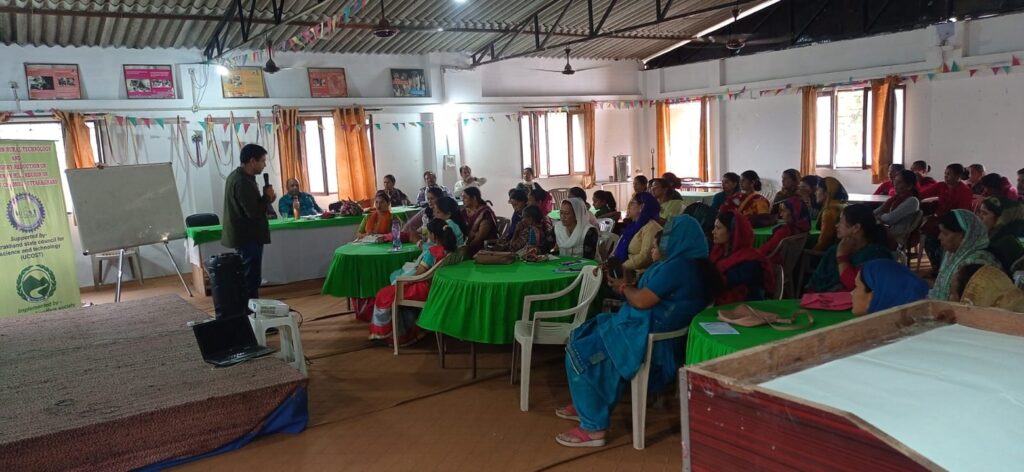
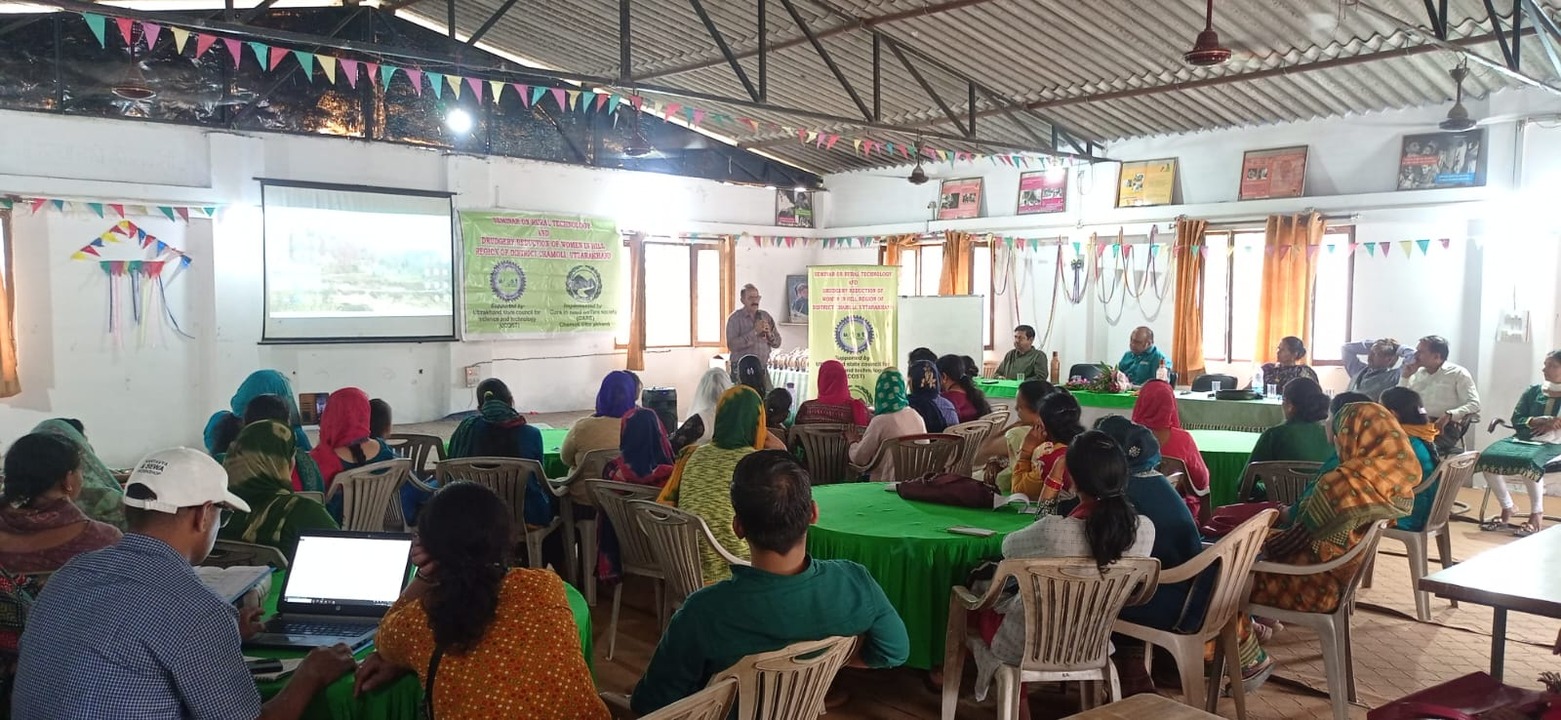
Mr. Ashok Sharma discussed various resources, including technologies, innovations, credits, and support systems, that can be harnessed to promote women's economic empowerment. He said that the rural tech sector presents a myriad of opportunities for start-ups, driven by technological advancements, changing consumer behavior, and supportive governmental policies. He explored the key factors creating a fertile ground for rural tech innovation and entrepreneurship, noting the challenge of reaching all small farmers to provide crucial information and resources.
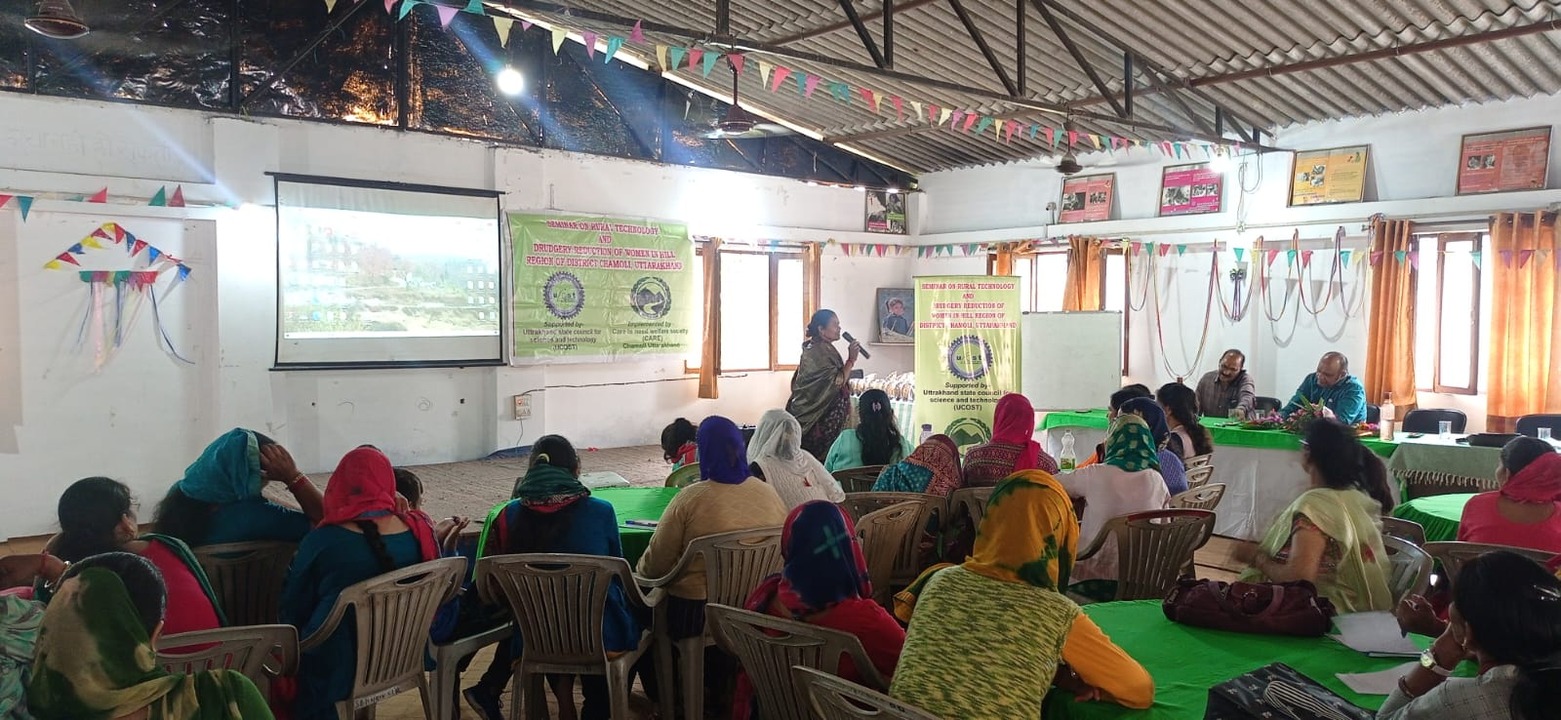
He highlighted the impact of climate change, explaining that with AI, ML, and satellite imagery, weather forecasting has become more accurate. Start-ups can provide weather-based advisories to help farmers mitigate climate-related risks and promote climate-resilient agriculture practices to protect farmers from adverse effects. The increase in mobile internet and smartphone penetration, especially among those under 35, offers agritech start-ups a unique opportunity to engage digitally with smallholder farmers through innovative solutions. Changing consumer behavior is also a key factor, with a growing demand for clean, chemical-free, and sustainably sourced food. Agritech start-ups can tap into this market by ensuring traceability and addressing supply chain issues. By leveraging new technologies, start-ups can help smallholders produce responsibly, catering to the health-conscious consumer market. Increased government and incubator support is another crucial factor. Governments are increasingly supportive of agritech at both implementation and policy levels. Key incubators and accelerators in India, such as AGRI UDAAN, Centre for Innovation Incubation and Entrepreneurship (CIIE), a-IDEA (Association for Innovation Development for Entrepreneurship in Agriculture), ICRISAT (International Crop Research Institute for the Semi-Arid Tropics), THub, Agri-Tech Start-up Accelerator CIE, Hyderabad, and MANAGE Agri-clinics and Agri- Business Centre Incubation Centre, play a crucial role in nurturing agritech start-ups by providing necessary resources, mentorship, and funding.
By leveraging technology, understanding consumer demands, and utilizing government support, these start-ups can address significant challenges and drive sustainable growth in the agriculture sector. Regarding market access issues, intermediaries often control the market and prices. Increasing farmers’ direct access to the market can help maximize their value.
Mrs. Basanti Sharma explored the role of e-commerce in empowering women within the agrifood chain, highlighting both the opportunities and challenges presented by digital marketplaces.
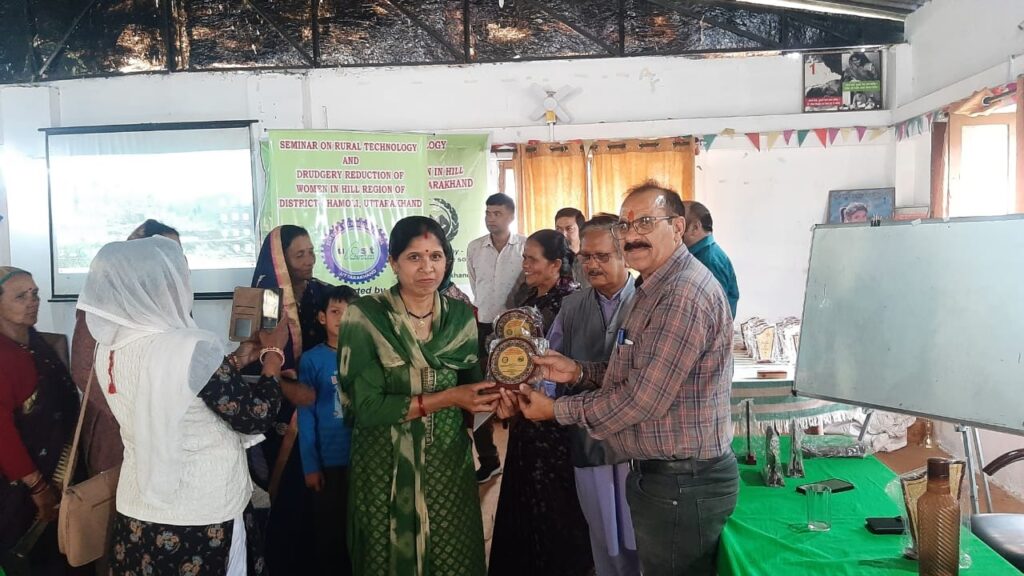
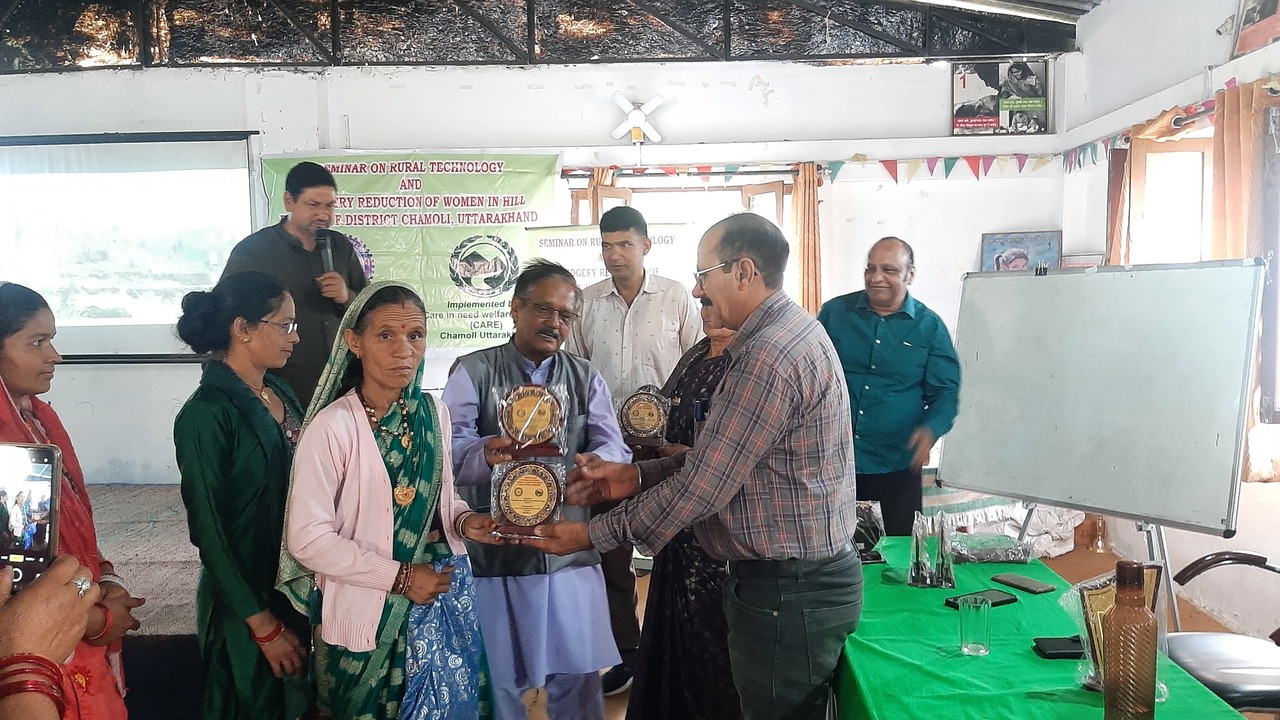
Mr. Maheshanand Juyal provided valuable information on start-up Village Entrepreneurship Programme(SVEP).
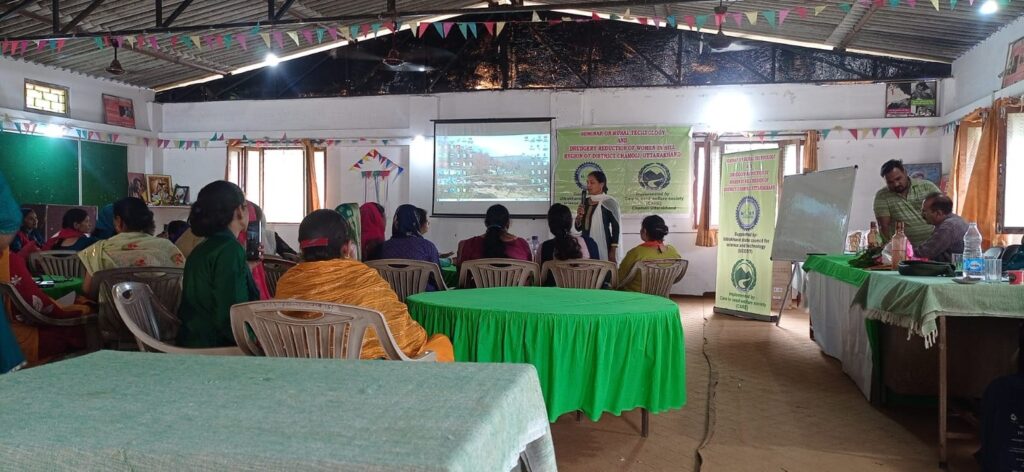
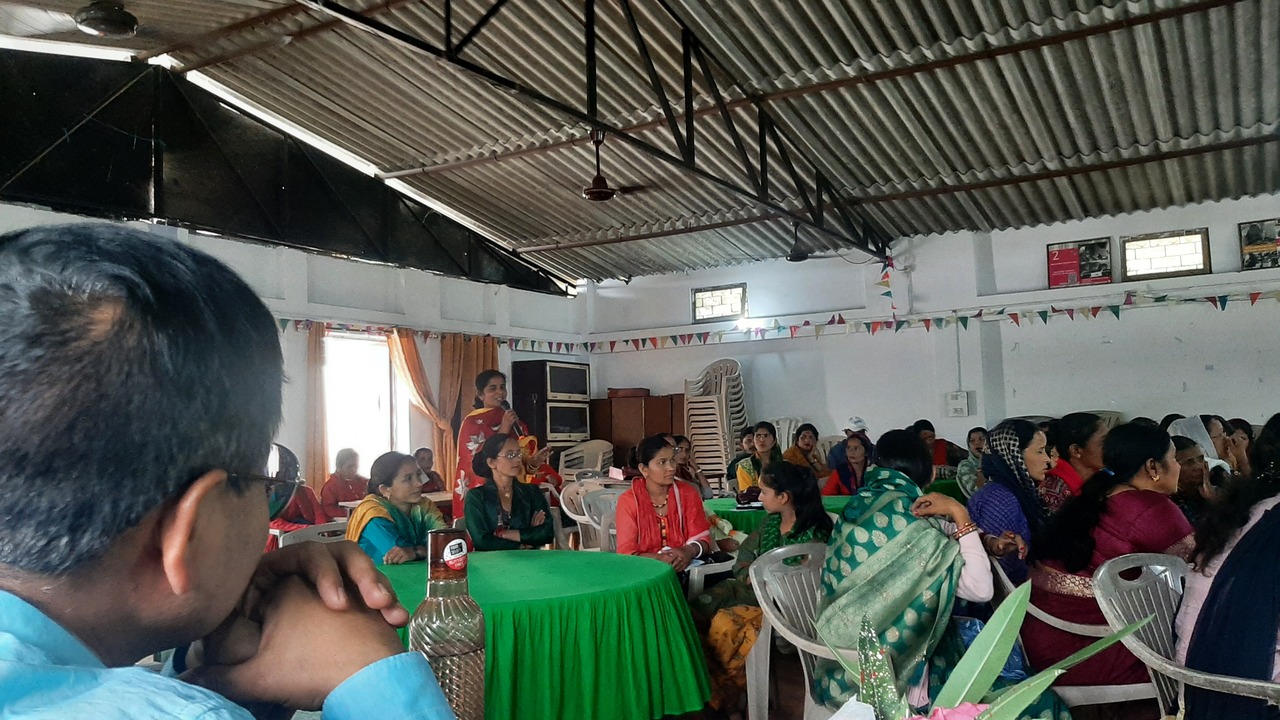
Mrs. Janki Rawat said that the farmers face challenges in accessing high-quality agricultural supplies, machinery, and other equipment, which results in low agricultural output or poor crop quality.
Mr. S.K. Dimri focused on the specific issues in Adopting E-Commerce such as digital infrastructure, training needs, and cultural barriers in Promotion of Women Economic Empowerment in Agri-Food Chain in Rural and Remote Areas.
He began his presentation by highlighting the importance of digitizing agricultural value chains to provide smallholder farmers, especially women, with better access to markets, assets, and services. He said that digital agriculture solutions, such as digital payments and procurement, create efficiencies for both agribusinesses and farmers. Digital procurement can generate records like production data, enabling farmers to access finance and advisory services. However, women farmers are often left behind due to social and structural barriers.
He further said that even though women make up 43% of the agricultural labor force but face challenges such as restrictive social norms, limited access to resources, and a mobile gender gap, making it harder for them to fully participate in and benefit from digitized agricultural value chains. Social norms often confine women to low-value, labor-intensive activities, and they are typically excluded from the most profitable parts of the value chains. Women’s participation in formal agricultural value chains varies, but they are generally expected to engage in unpaid domestic work, limiting their time and mobility for agricultural activities. He also said that the lack of access to resources is a significant barrier for women. Even when they do supply agribusinesses, they often lack access to quality agricultural inputs, equipment, and financial services. Women farmers receive less training and extension services compared to men, further hindering their productivity. Structural constraints like lack of ID documents and low financial literacy also contribute to the productivity gap between male and female farmers.
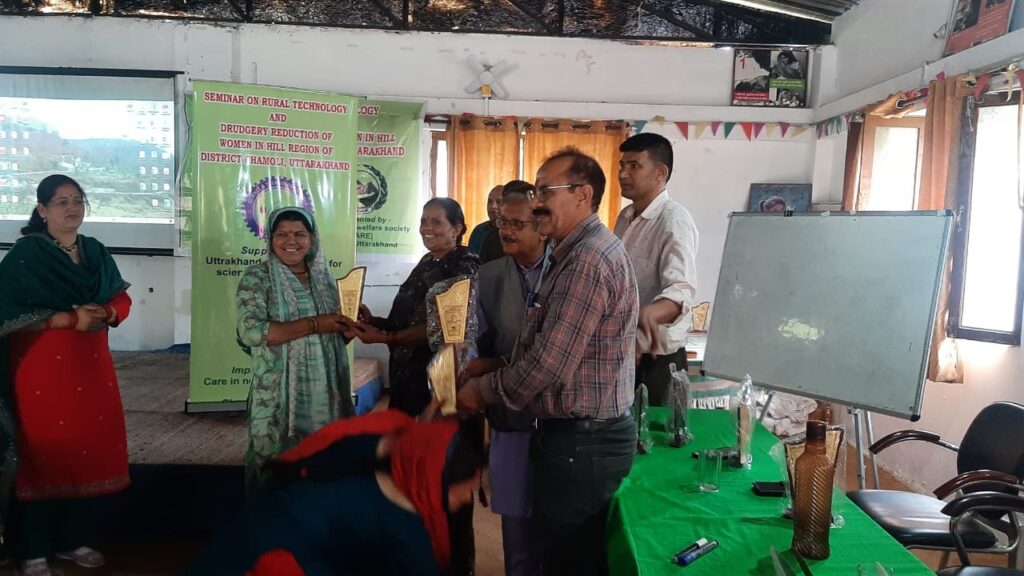

Mr. Leeladhar Joshi emphasized the significant role of rural women in agriculture and related agro-based activities. He highlighted the demanding and strenuous daily work schedules these women undertake. Women form the backbone of the agricultural workforce worldwide, yet their labor is often unpaid. They handle some of the most laborious and physically demanding tasks in agriculture, animal husbandry, and household chores.
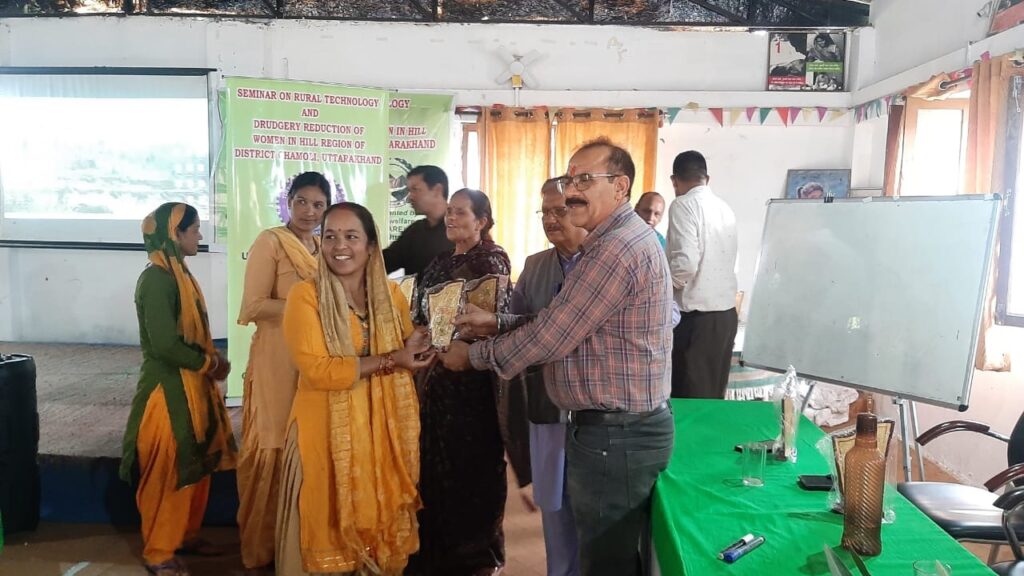
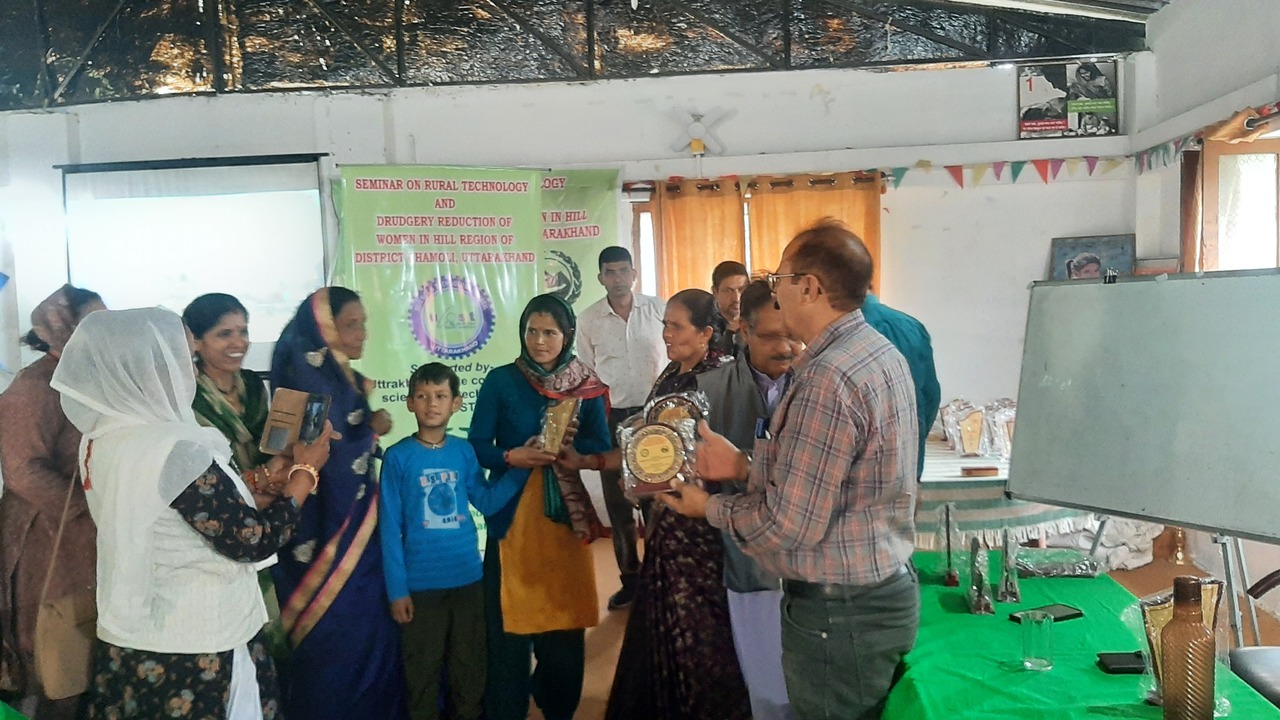
The Agricultural Accelerator Fund and digital public infrastructure: The government has established a new fund to promote the agritech ecosystem, potentially fostering new start-ups that will enhance digital usage and expand the range of digital solutions available to farmers. Additionally, the government announced plans to establish an open-source digital public infrastructure, likely providing agritech companies with vital information services along the value chain. The last session included the participants sharing personal experiences, success stories, and challenges faced in efforts to empower women through rural technology and e-commerce. They said that they face unique challenges that hinder their economic empowerment and access to opportunities. These challenges range from limited access to education and healthcare to social and cultural barriers that restrict their participation in the workforce and entrepreneurship.
One of the primary challenges faced by many women is limited access to resources and support for entrepreneurship. Many women who have startup ideas struggle to find the necessary funding and support to turn their vision into reality. Additionally, the lack of networking opportunities, making it difficult for women to access markets and connect with potential investors and partners The participants brought out the fact that despite putting in more efforts in farming, they ultimately rely on their spouses, fathers, brothers, or sons to acquire legal privileges on holdings and avoid the needed paperwork. Due to the absence of legal titles; Uttarakhand women are unable to access facilities like crop insurance despite shouldering the bulk of the farm work. Farmers are almost exclusively male, even though the word is gender neutral. They said that they want to acknowledge that women are farmers as well. Likewise, property rights must be better utilized by more and more women in the state. At the grassroots level, where agricultural livelihoods dominate, there’s an urgent need to create opportunities for women. For this, policies which empower women to improve their agricultural skills and knowledge would be beneficial. Thus because of the difficult terrain and the growers’ limited bargaining and handling capacity due to smaller holding sizes and a lack of resources, it is obvious that the hilly regions of the state require special attention in terms of marketing interventions and infrastructure.